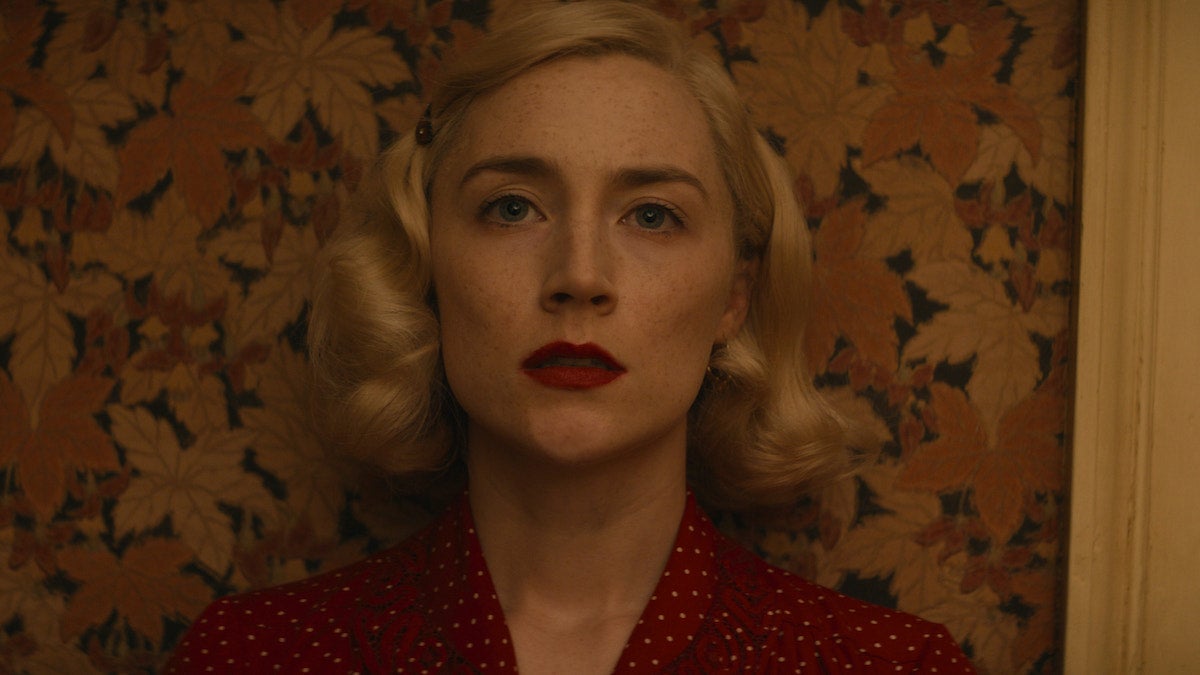World
‘Blitz’ Review: Steve McQueen’s Epic World War II Drama Is a Masterpiece

Steve McQueen’s “Blitz” isn’t just a movie, it’s a lot of movie. It’s one of the most enormous cinematic experiences in recent memory. It’s a World War II epic with a stunning sense of scale. It’s an intimate family drama about meaningful relationships in crisis. It’s an intelligent recontextualization of a historical era that’s too often viewed through a single lens. It’s a Dickensian melodrama with outsized yet believable characters. It’s an Irwin Allen-esque disaster film with impeccable visual effects. It’s got great musical numbers. It’s funny. It’ll make you cry. I’ve been to whole film festivals with less cinema than Steve McQueen packs into just two hours.
“Blitz,” which had its world premiere at the London Film Festival, tells a story about a family trying to survive the Nazi bombing raids in the United Kingdom, which took place from 1940 to 1941. The Blitz killed over 40,000 civilians and destroyed over a million homes. Many parents shipped their children out to the country for their safety.
Saoirse Ronan plays Rita, a single mother whose son George (Elliott Heffernan) is Black, and endures racism from the other children. George’s father is out of the picture, for reasons the film reveals later, but George loves his mother and she loves him, and it devastates her to put him on a train while she stays behind. It devastates him too. That’s why George’s last words to Rita are, “I hate you.” He stares dead-eyed into the middle distance in his seat, while she cries out through the window that she loves him.
As George simmers in his sense of abandonment, it finally hits him how much he hurt his mom, so he decides to make it right. With the impeccable yet theatrical logic of an 11-year-old, George decides to jump off the train and run home. He spends the rest of “Blitz” searching for his mother, while his mother searches for him.
The greatest obstacle “Blitz” has to overcome is the contrivance of this set-up, since it obviously lends itself to treacly sentimentality. There’s a version of “Blitz” in the multiverse somewhere full of maudlin speechifying and absurd coincidence, a cavalcade of war movie claptrap. But that’s not this version. McQueen uses his outwardly simple story as an excuse to delve into the complexities of the era, in an episodic and impressively thorough way.
Rita, at first unaware George is missing, tries to console herself with work and social gatherings. She even has an opportunity to sing on the radio, a charming moment that quickly turns political. What she finds, however, is that she’s uncomfortable merely living her life: If she can’t care for George, she has to care for somebody, so she volunteers at bomb shelters. Meanwhile, George finds himself passed from one adult to another, some of whom have his best interests at heart, others with ghoulish intentions. There’s a lot of money to be made from robbing the dead, and there’s plenty of dead to go around.
The huge narrative scale of “Blitz” is breathtaking but Steve McQueen — who wrote and directed this masterpiece (not his first) — isn’t satisfied with mere operatics. There are segments of “Blitz” that feel right at home in the Golden Age of Hollywood, where disaster epics like “San Francisco” and “In Old Chicago” juxtaposed destruction and sentimentality, and exceptionally-crafted propaganda films like “Mrs. Miniver” evoked enough empathy to move mountains.
But those films ignored, like the vast majority of early motion pictures, the perspective of People of Color. “Blitz” is told through George’s eyes, and through his eyes the world has different meanings. He can’t even stare hungrily through the window at a candy shop without racist advertising caricatures staring back at him.
Every character in “Blitz,” whether they have one line of dialogue or none at all, is a complete creation. There are unexpected angels and unexpected devils, and innocent bystanders whose stories we dive into just minutes before they’re blown to pieces. Everyone is preoccupied with their own lives and most of them don’t pay much attention to the small boy wandering the streets, and the ones that do are often unsavory.
“Blitz” is a patchwork film. It flits between tones and styles, but it does so with such skill that the transitions are usually seamless. Cinematographer Yorick Le Saux (“Little Women”) keeps every scene within the same world, matched by impeccable production design from Adam Stockhausen (“Asteroid City”). The film is gracefully produced on every level, with a Spielbergian sense of scale that’s hardly been matched lately. Perhaps that’s because we’re looking up at the exposed bones of civilization from the eyes of a child. Even horrors have a sense of wonder.
Steve McQueen has always been a great filmmaker, but he’s been pushing himself further and further lately. His “Small Axe,” a collection of five films exploring the West Indian immigrant experience in London over the course of multiple decades, remains one of the great motion picture accomplishments of the 2020s. He’s brought his trenchant insight and fierce commentary and love for life over to “Blitz,” while also embracing old-fashioned movie magic. “Blitz” is the sort of film that 1930s posters would proclaim was “The Sensation of the Season” or “The Most Powerful Motion Picture Experience” back before movie marketing had any sense of shame.
But hyperbole is only hyperbole if it isn’t warranted, and “Blitz” deserves all its praise. This is a great motion picture in every sense.
“Blitz” will debut in select theaters Nov. 1, 2024 before its global premiere on Apple TV+ Nov. 22, 2024.










